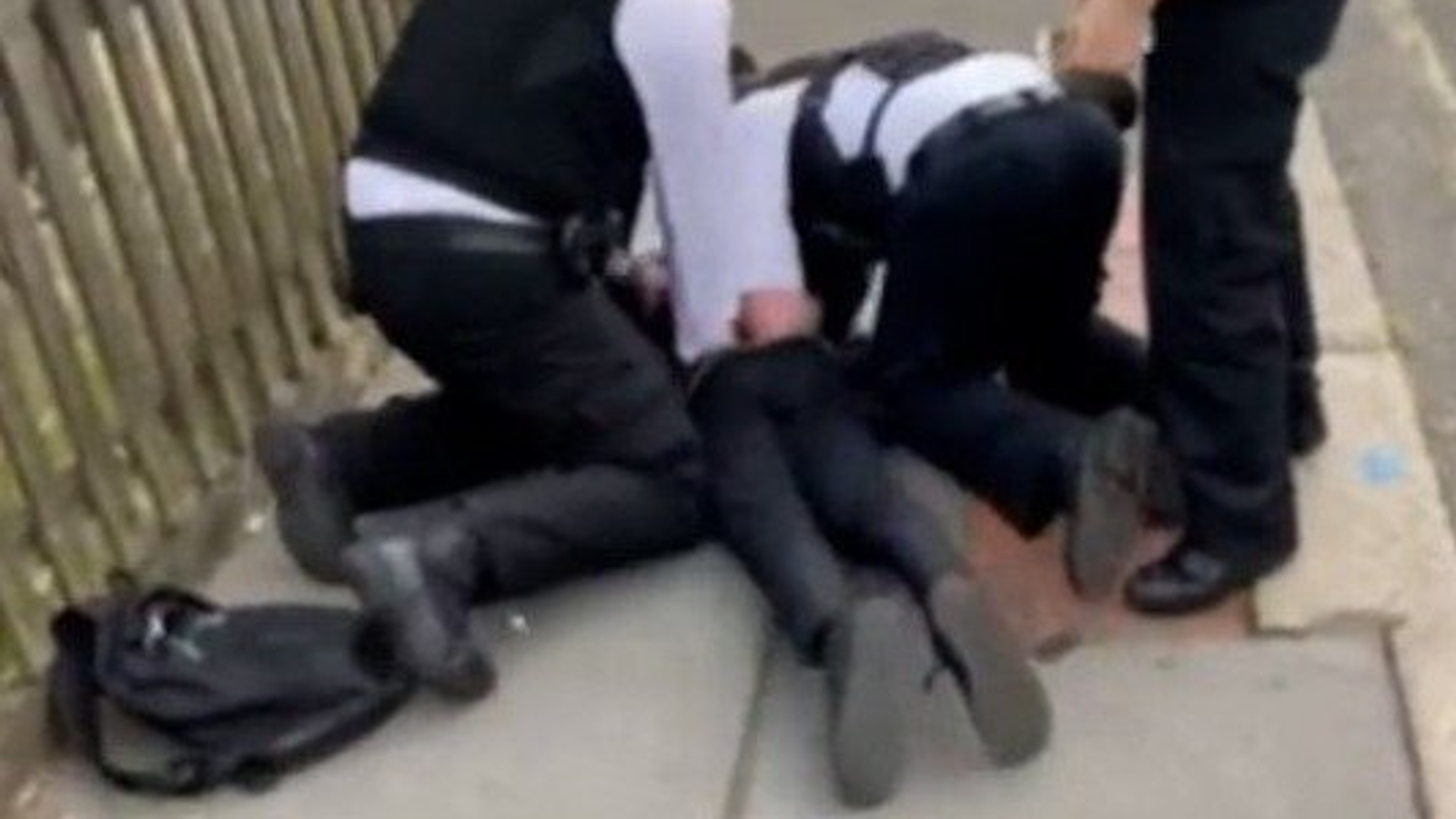New figures on lack of trust in police among black children are “shaming”, according to the UK’s highest ranking black officer, responding to exclusive data provided to Sky News.
Research by criminal justice consultancy Crest Advisory found an “alarming” lack of trust in police among black children and teenagers.
The exclusive report found that whilst most young people had trust in the police (73%) only 36% of black children and teenagers felt the same.
Worryingly for the police, the survey also suggests young black people are less likely to call the police if they are in danger.
Deputy Chief Constable Tyron Joyce, the highest-ranking officer of black heritage, says he found the figures “shaming”.
He said: “My overwhelming view as a father, I find that incredibly sad.
“As a member of the community, I find that sad. As a serving senior police officer – it’s something that is shaming.”
Three police officers suspended over misogyny, racism and homophobia claims
E-scooter deaths triple this year, new figures show, as campaigners call for government to pause trials
70,000 people to get texts today and tomorrow to tell them they’ve fallen victim to £48m scam
DCC Joyce has taken it upon himself to try and build trust between police and black communities by developing a national Police Race Action Plan aimed at tackling discrimination and addressing the unfairness in the way black people are treated.
He says: “[It’s] about looking at how we examine more effective policing. How we demonstrate that we’re fair in terms of stopping and searching and how we balance the use of that power with the trauma that it causes.
“Because we do recognise that any interaction actually always including stop and search, irrespective of the outcome is traumatising.”
The report focuses specifically on the views of children and teenagers and its findings based on a nationally representative survey of 1,542 people aged 10 to 18.
It found the majority of children (61%) agreed that knowing police are stopping and searching people in their area made them feel safer.
However, this figure varied drastically when broken down by ethnicity, with only 36% of black children agreeing.
Jayden is 15 years old and contributed to the Crest Advisory report via LifeLine Projects, an initiative set up to support young people.
Jayden has been stopped and searched three times in the past 12 months.
He says he does “agree with stop and search” especially considering the levels of violence impacting young people.
However, when asked to describe the three times he has been stopped and searched, he became visibly uncomfortable, finding it difficult to discuss the detail.
“A bit humiliating,” he says, adding: “There were people coming out of schools, parents and kids and it was just a bit embarrassing.”
“I probably wouldn’t say they treated me like a child, I would say they treated me more like an adult. It seemed it was a bit hard for them to tell my age, and I would say they probably need to change that for youths,” Jayden concludes.
Read more:
Stop and search ‘a rite of passage for black boys’
The adultification of black children by police has long been a concern, one shared by Janet Joseph, the mother of 14-year-old De-Shaun, who has been left “traumatised” after coming into contact with officers.
She says before the incident, he was a keen football player with lots of friends and a healthy social life.
But now, things are different.
“He no longer wants to do football, his education has been massively affected by this. We have had to organise transport to get him back and forth from school,” says Janet.
“He no longer goes out with friends any more and of course, there is a big distrust.”
“He is never going to forget that day, the trauma has been implanted,” she adds.
The stop and search incident involving De-Shaun is now being investigated by the Independent Office for Police Conduct.
But Janet is now calling for a change in law which would treat adults and children differently.
Read more:
Stop and search: Home Office figures show police ‘abused powers’ in England and Wales last year
She is being supported by family advocate and social justice campaigner Simone Frazier, who explains the significance of the petition.
Simone says: “Whilst we are in agreement with stop and search, we are saying that the way in which children are being profiled and black children are being profiled is very wrong. Now is the time, in 2022 for us to do something about it.”
The petition for the bill already has well over 3,000 signatures, proving there is support among communities.
Simone says she believes it’s because those impacted, like De-Shaun and his family, want real change.
“We need a child-centred approach to stop and search. Children need to be recognised as children, and that’s what the De-Shaun Joseph justice bill seeks to do,” adds Simone.









